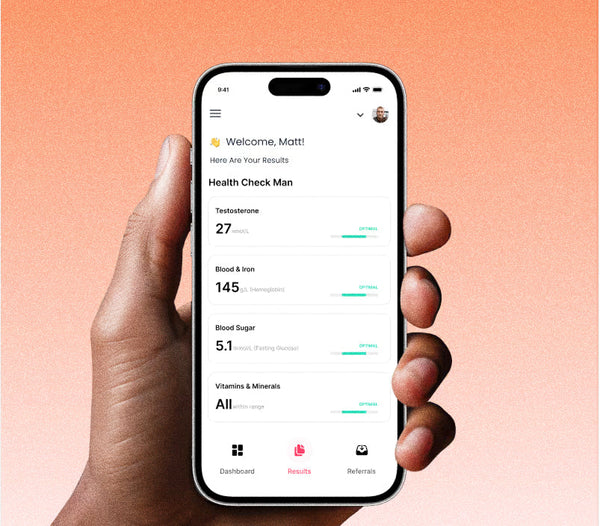
Lactate Dehydrogenase (LDH)
What to expect
We want you to feel bloody good—inside and out. Regular testing isn’t just about checking your current health; it helps you spot abnormal values you might not know about.

Book your referral
Choose the testing that suits your goals. After ordering, you will receive your referral by email.

Collect your sample
Easy sample collection at one of our 4000+ partner collection centres throughout Australia. Find nearest

Receive your results
View your lab results and receive a personalised review from the secure Bloody Good platform.
Before vs. Bloody Good
Start tracking your health with real data.
Order online in minutes and get clear doctor‑reviewed results in your private dashboard.
Old Way
Traditional System
- Confusing reports and medical jargon in a PDF (if you're lucky to get a report)
- One‑off results — no trend tracking or context
- Hidden costs and long clinic queues
- Waiting days for simple answers
- No proactive insights to prevent issues
The Bloody Good Way
Cheeky brand. Serious health results.
- 4000+ collection centres throughout Australia or book a home visit
- Results in ~48 hours for most tests, reviewed by a doctor
- Clear explanations in your private dashboard — not jargon
- Track biomarkers over time with personalised recommendations
- Up‑front pricing. No surprises. Start today.

Take a deep dive into your health
Our comprehensive health checkups test everything you need to know about your body.
Heart Health
Cardiovascular markers and risk assessment
Liver Function
Liver enzymes and detoxification markers
Blood Tests
Complete blood count, lipid panel, and more
Kidney Health
Kidney function and filtration tests
Thyroid Panel
Complete thyroid function assessment
Vitamins & Minerals
Essential nutrient levels and deficiencies
Hormones
Hormone balance and endocrine function
Bone Health
Bone density and calcium metabolism
